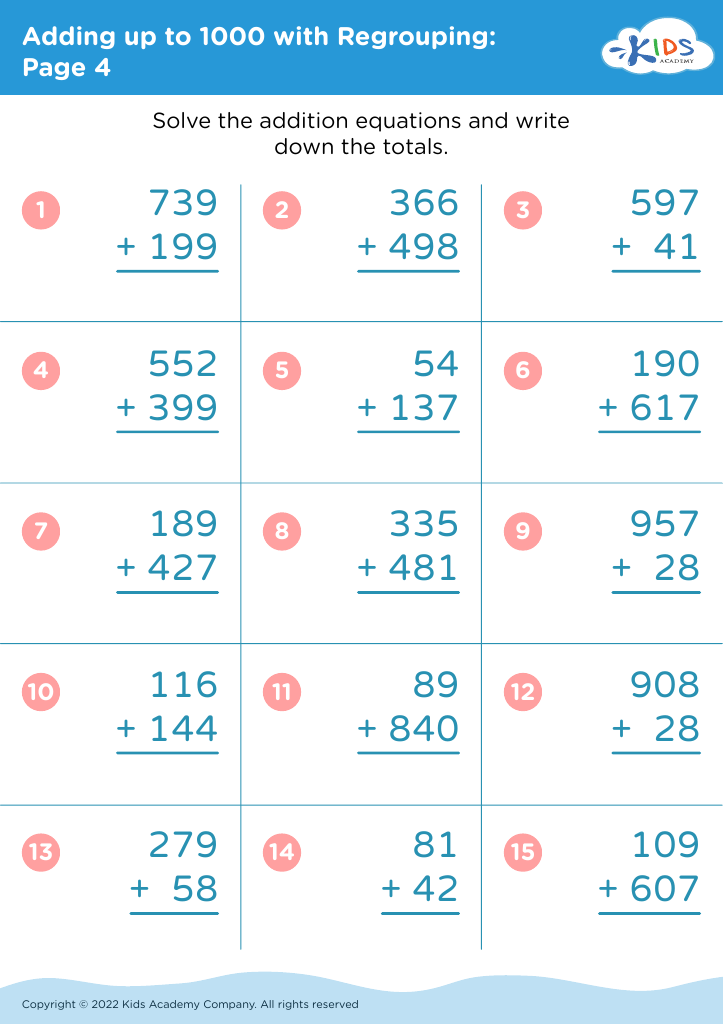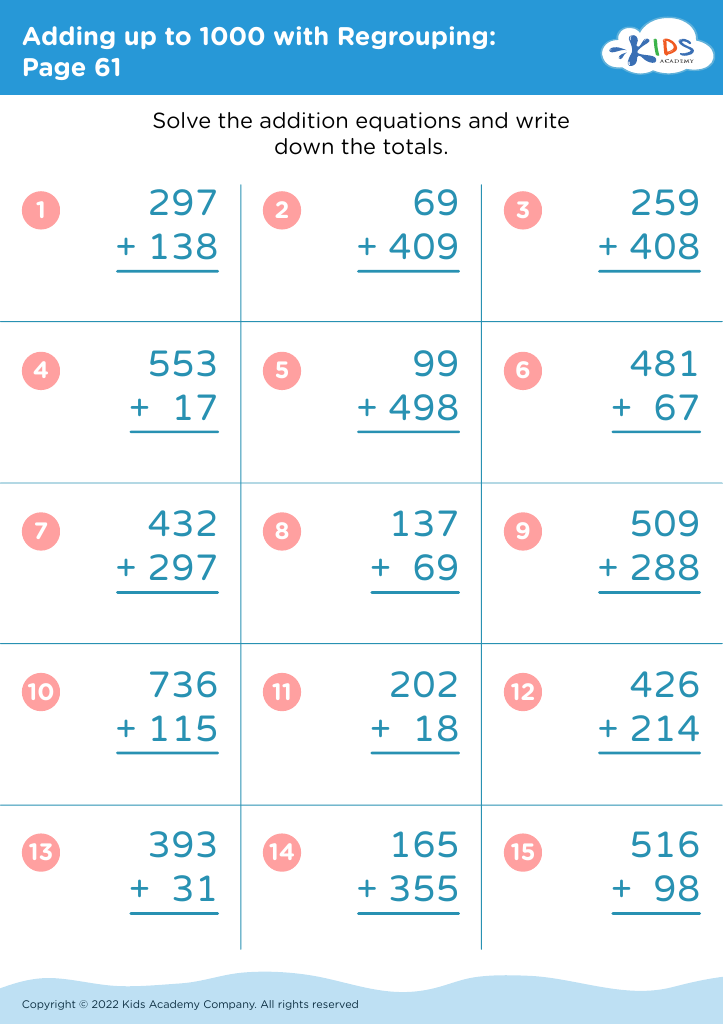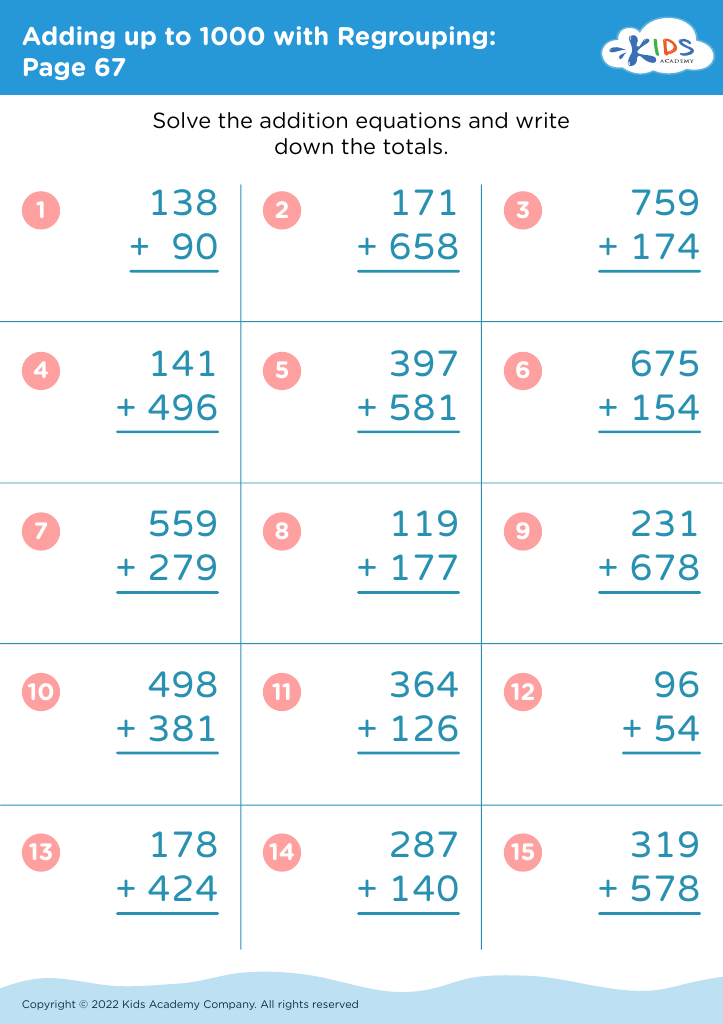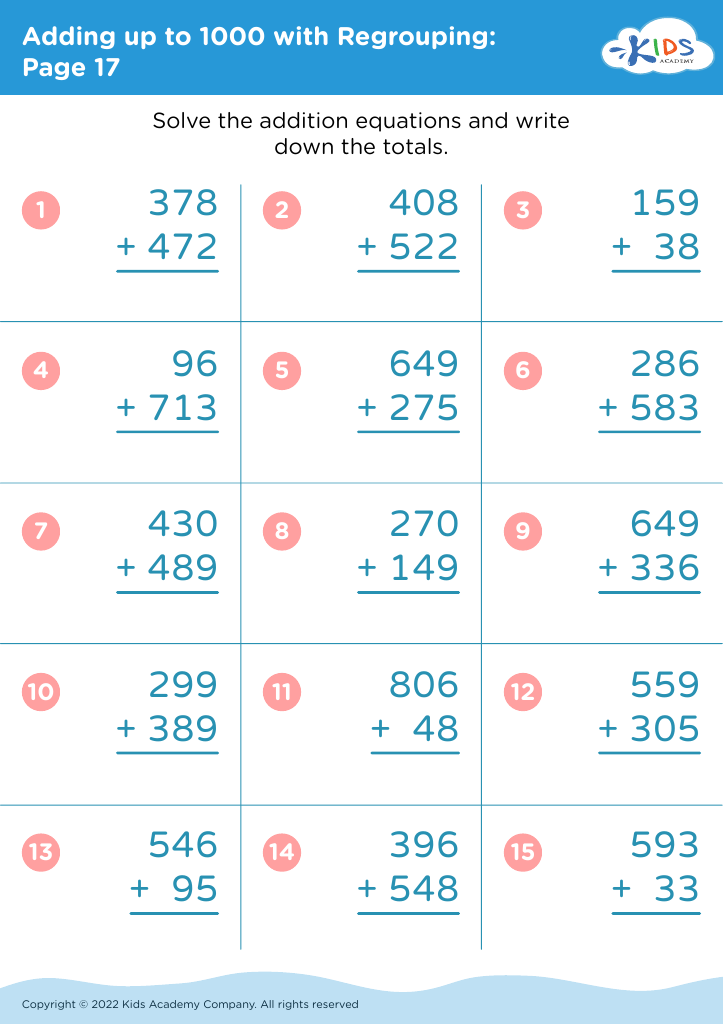Basic Math Skills Adding up to 1000 with Regrouping Worksheets for Ages 6-7
7 filtered results
-
From - To
Enhance your child's arithmetic abilities with our "Basic Math Skills Adding up to 1000 with Regrouping Worksheets". Designed for ages 6-7, these worksheets provide engaging exercises that help master addition while building confidence and competence in solving math problems. Each worksheet is crafted to teach regrouping techniques, ensuring a smooth transition to higher math principles. Ideal for home or classroom use, these worksheets are perfect for reinforcing lessons and providing extra practice. Unlock your child's potential and make learning fun with our expertly created adding up to 1000 worksheets. Explore today for top-notch educational experiences!
Parents and teachers should prioritize basic math skills, such as adding up to 1000 with regrouping, for children aged 6-7 because these foundational skills are critical for future academic success and everyday problem-solving. At this age, children are in a critical developmental stage where they can grasp numerical concepts more effectively.
Mastering addition up to 1000 with regrouping (also known as carrying) helps children understand values, place relationships, and the base-ten number system, which are fundamental to higher-level math concepts. Applying regrouping techniques strengthens their logical reasoning and fosters a systematic approach to tackling numbers.
Such math skills contribute significantly to cognitive development, enhancing critical thinking, attention to detail, and memory. Children who are proficient in early math are likely to find advanced mathematical topics less daunting and more approachable.
Furthermore, strong foundational math skills influence positively other subjects such as science and technology, creating a well-rounded academic base. Beyond academics, everyday tasks like handling money, measuring ingredients in cooking, and time management also require robust math skills.
Hence, a solid understanding and application of basic math reinforce self-confidence and independence in children, providing them with tools to succeed in and outside the classroom. Prioritizing these skills ultimately sets the stage for continued educational progress and day-to-day competence.


















